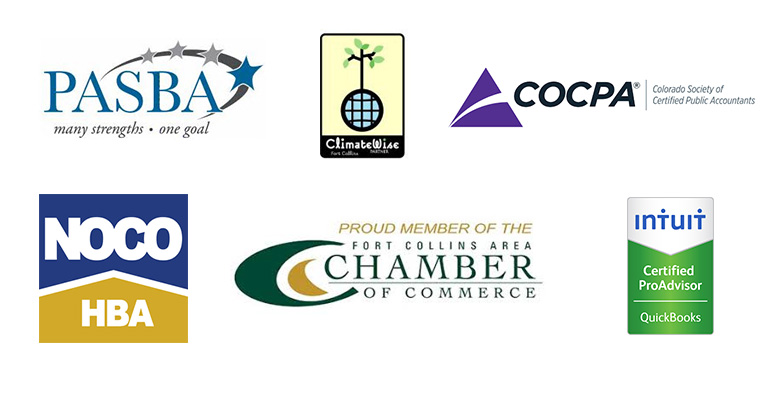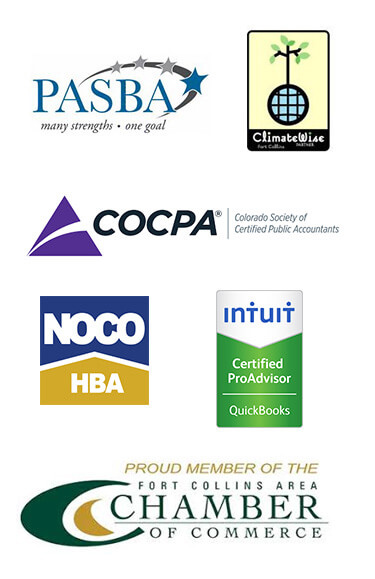Accounting for Optometrists
Working with specialized tax services for optometrists is crucial for navigating the intricacies of tax law and maximizing deductions. Optometrists in Colorado, in particular, benefit from state-specific tax incentives that apply to healthcare providers. A CPA can assist with long-term financial planning, compliance with both state and federal tax regulations, and ensuring every eligible deduction is captured. This level of expertise can prevent missed savings and prepare optometrists for potential audits or IRS inquiries.
If you are an optometrist seeking to reduce your tax burden and streamline your finances, partnering with an experienced CPA is essential. Whether it’s managing deductions for equipment, marketing, or business loans, a CPA familiar with the unique needs of optometrists can ensure that every opportunity is maximized.
Essential Tax Deductions for Optometrists in Colorado That You Need to Take Advantage Of
Are you aware of all the optometrist tax deductions in Colorado that you can enjoy? If not, you need to check because you may be missing out! Optometrists are essential healthcare professionals, and while you focus on the well-being of your patients’ vision, you also need to focus on the health of your business finances. Taxes can be a significant burden for any business owner, and optometrists are no exception. However, with the right financial planning and the help of a qualified optometry CPA, there are numerous tax deductions that can ease your load.
This guide will walk you through the most important optometrist tax deductions in Colorado and provide insight into how to maximize them.
Understanding Optometrist Tax Deductions in Colorado and Beyond
When running an optometry practice, taxes can be complex due to the variety of deductible expenses. As an optometrist, you need to know which deductions apply to your practice to ensure you are not overpaying and to help keep your business financially sound. You can access various tax deductions that can help reduce your overall tax burden. This involves strategic financial planning for optometrists, an area where accounting for optometry services become invaluable.
Optometrists can deduct a wide range of business-related expenses that reduce taxable income. While some deductions are specific to the state of Colorado, many apply nationwide.
1. Equipment and Supplies
One of the largest expenditures for any optometrist is equipment and technology. Optometry practices rely on a variety of specialized equipment for eye exams, diagnostics, and treatments. Under IRS guidelines, the cost of purchasing and maintaining these essential tools can be deducted.
Some examples include:
- Diagnostic equipment: Devices such as phoropters, retinal cameras, and visual field analyzers are deductible.
- Office furniture: Exam chairs, waiting room furniture, and office desks can be deducted.
- Computer systems: Hardware and software used for patient management and record-keeping are tax-deductible.
- Optometry supplies: Items like contact lenses, frames, and lens-making materials are deductible business expenses.
These types of purchases are typically capitalized and depreciated over time, allowing optometrists to claim deductions in future tax years as well. However, under Section 179 of the IRS code, you may be able to deduct the entire cost of certain equipment in the year it was purchased, which can provide a significant tax break. This is a key consideration when conducting financial planning for optometrists.
2. Office and Clinic Space
Whether you own or rent your practice space, there are several tax deductions to consider:
- Rent: If you lease your office space, the full amount of rent is tax-deductible.
- Mortgage interest: For practice owners, mortgage interest on the property is deductible.
- Property taxes: These are deductible for practice owners.
- Utilities: Expenses for electricity, water, gas, and internet services are tax-deductible.
- Maintenance and repairs: Costs for keeping your office in good condition are deductible.
3. Employee Salaries and Benefits
One of the major deductible taxes optometrists can enjoy are from salaries, wages, and benefits paid to staff, including receptionists, opticians, and other support personnel. This includes not only wages but also employer contributions to retirement plans, health insurance, and other benefits. By deducting these expenses, optometrists can reduce their overall tax liability.
You should also consider the tax advantages of setting up retirement plans for yourself and your employees, such as SEP IRAs or 401(k) plans. These can provide long-term financial benefits for both the practice owner and employees while reducing taxable income.
4. Continuing Education and Professional Development
As medical professionals, optometrists are required to engage in continuing education to stay up-to-date on the latest advancements and retain their licenses. Fortunately, the costs associated with attending seminars, conferences, or courses related to optometry are fully deductible.
Additionally, optometrists can deduct travel expenses related to attending these events, including airfare, lodging, meals, and transportation. By maintaining thorough records, you can ensure that every qualifying professional development expense is accounted for during tax filing.
Lesser-Known Tax Deductions for Optometrists
Do you know that aside from the common tax deductions mentioned previously, there are several others that you might want to check if applicable. Check also with your CPA to verify the following information:
1. Advertising and Marketing Expenses
To keep a practice running smoothly and attract new patients, optometrists must invest in marketing. The good news is that advertising and marketing costs are fully deductible. This includes costs related to:
- Print advertising: Costs for newspaper ads, flyers, business cards, brochures and other promotional items are deductible.
- Digital marketing: Expenses for website design and maintenance, social media advertising, and online directories are tax-deductible.
- Community outreach: Costs associated with local events or sponsorships can be deducted.
If you’re using a marketing firm to handle these efforts, the fees you pay them are also deductible. Investing in advertising not only grows your patient base but also serves as a useful way to reduce taxable income.
2. Auto or Vehicle Expenses
If your optometry practice requires you to travel for business purposes, such as visiting patients, attending conferences, or managing multiple office locations, you can deduct auto-related expenses. There are two ways to claim this deduction:
- Standard mileage rate: The IRS provides a set rate for every mile driven for business purposes.
- Actual expenses: Optometrists can deduct the actual costs of vehicle ownership, including gas, insurance, maintenance, registration, and depreciation.
Choosing between the standard mileage rate and actual expenses depends on which method provides the higher deduction, and a skilled optometry CPA can help determine the best option for you.
3. Medical Supplies and Inventory
In addition to high-tech equipment, optometrists must stock a wide variety of medical supplies, frames, lenses, and other eye care products. The cost of purchasing these supplies is deductible as a business expense. Moreover, if you offer prescription lenses and glasses, your inventory expenses are deductible.
When managing supplies and inventory, accurate accounting for optometry is essential to ensure these deductions are properly tracked. Mismanagement in this area can result in missed deductions or compliance issues, so having a reliable tax strategy in place is crucial.
4. Interest on Business Loans
Many optometry practices rely on financing to cover startup costs, expansions, or the purchase of expensive equipment. If you have taken out business loans, the interest you pay is generally deductible. This applies to loans used for buying real estate, equipment, or even covering operational expenses during slower periods.
Consulting with an optometry CPA can help you determine how to maximize deductions related to loan interest, ensuring your practice’s financial health while optimizing tax savings.
Importance of Specialized Tax Services for Optometrists
The complexity of running an optometry practice and navigating ever-changing tax laws can be overwhelming. This is where working with a specialized optometry CPA can make a significant difference. CPAs with experience in the healthcare sector understand the unique challenges optometrists face and can help optimize tax strategies.
An experienced CPA will not only help with tax filing but also assist with:
- Developing long-term financial plans
- Ensuring compliance with federal and state tax regulations
- Maximizing eligible deductions
- Preparing for audits or IRS inquiries
The difference between doing taxes yourself and working with an CPA can be significant, especially in terms of reducing your overall tax burden.
Optometrist Tax Deductions Colorado Practitioners Can Fully Enjoy
Optometrists in Colorado have access to additional tax benefits that may not be available in other states. Colorado offers incentives for healthcare providers, and state-specific deductions may apply to optometrists running their own practices. Staying informed about the latest tax laws at the state and federal levels is essential.
Some of the optometrist tax deductions specifically available to Colorado professionals include:
- Colorado Enterprise Zone Tax Credits: If your practice is located in a designated enterprise zone, you may be eligible for additional tax credits. It is best to consult a Colorado CPA to know more about the tax credits available for optometrists and other enterprises in the state.
- Colorado Job Growth Incentive Tax Credit: This credit can benefit optometrists who are expanding their practices and creating new jobs in the state.
- Colorado First and Existing Industry Customized Job Training Grant Programs: These programs can provide funding for employee training, which can be a valuable resource for optometry practices.
An optometry CPA in Colorado can provide insights into how state tax regulations may impact your practice and help you navigate these complexities.
ADA Compliance and Tax Credits
Steven, of SJ Wick & Associates, P.C., states that optometrists should pay close attention to tax credits related to ADA (Americans with Disabilities Act) compliance:
“We need to look into ADA compliance and tax credits that constantly change sometimes from year to year. We need to check if you need to buy a special machine or even update your website so it becomes ADA compliant and then you can get potentially some credits there.”
These credits can provide significant savings, as much as $5,000 if they meet the requirements, while ensuring your practice is accessible to all patients. Some areas to consider for ADA compliance and potential tax credits include:
- Equipment upgrades: Purchasing ADA-compliant diagnostic equipment.
- Facility modifications: Making changes to your office layout or furniture to accommodate patients with disabilities.
- Website accessibility: Ensuring your practice’s website is accessible to visually impaired users.
Maximize Your Tax Deductions with the Right CPA
Navigating the world of optometrist tax deductions in Colorado can be complicated, but with proper financial planning and the right guidance, you can significantly reduce your tax burden. Whether it’s deducting equipment costs, marketing expenses, or employee salaries, there are numerous opportunities to maximize your tax savings.
Partnering with an experienced optometry CPA who understands the intricacies of your profession is essential. By optimizing deductions and planning strategically, you can ensure the long-term success of your practice.
If you’re looking for expert tax services for optometrists in Colorado, the professionals at SJ Wick & Associates can help you navigate the complexities of tax deductions and ensure you’re getting the most out of your tax filings. Contact us today to take control of your finances and secure your practice’s financial future!




